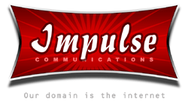We live in a magical time. With one click, I can listen to almost any song or album ever made just by paying $9.95/month to Spotify or iTunes. I can view any music video instantly for free with only a simple YouTube search. When I was a kid, I had to spend hours watching MTV just to see a few videos I liked. Nothing was ever instant back then. Almost all stores were closed on Sundays, TV shows were on at a specific time or else you missed them. And to get around I had to find locations on a giant, hard-to-fold map. Now I get mail on Sundays (Amazon has a special deal with the US Post Office), watch everything through my TIVO, and my car gives me directions.
The music industry is having problems adapting to the changes. If you grew up in the 1970s or 1980s, you may remember Columbia House, which was a company that advertised in magazines (such as TV Guide) and would mail you up to 12 cassette tapes (later CDs) of your choosing for a penny. You just had to promise to buy a few more cassettes/CDs from them at the retail price over the next few years. To nobody’s surprise, Columbia House went out of business this summer. Also, the streaming music service that I listen to while I am working at my PC every day is going out of business. Rdio.com was reportedly losing around $2 million a month, so they went bankrupt in November and sold most of their assets to Pandora. I am in the process of testing out Spotify and Apple Music, but neither is as good as Rdio.
With all the great content out there to devour, we are too busy and impatient to put up with advertising. We skip banner ads using ad blockers, fast forward through commercials on our DVR, and upgrade to the premium level on music streaming services to avoid the ads. While driving in a car, radio is too “slow,” so we change to a new station every time an ad starts. Watching TV live is no good anymore because it is excruciating to sit through the commercials. As a result, advertisers now need to find creative ways to get their message heard. Facebook has “sponsored posts.” Movies and TV shows have paid product placements. Celebrities make paid tweets. Sports stadiums sell naming rights. A reality show might have the Pepsi confessional booth; a football game might have the Nike instant replay of the day. “Related” sites/stories on major websites are most often paid link placements, even if they are interesting.
We have taken a giant step forward, but also a small step back. Something is lost in all of this. Business and science are smothering the radiant light of art. The thing is, while being forced to watch and listen to stuff you don’t want, you sometimes discover something new that you do like. If every week, for example, you just listen to the list of the top 50 songs, you may never expand your musical horizons. If you spend all day reading only your Facebook news feed, you will probably just see postings from people who think like you and are into the same things you are. There is a whole world of content out there; you just need to go out and discover it.
Some of this is what Eli Paraser talks about in his book The Filter Bubble: How the New Personalized Web Is Changing What We Read and How We Think. Personalized targeting by companies like Google, Facebook, and Yahoo creates an online world where you only see what they want you to see. Everything is filtered. You are essentially living in your own little bubble.
We may also be in the middle of a domain name bubble. Right now all domainers are talking about is how short letter/number domains purchased by Chinese buyers are dominating the market (see http://techcrunch.com/2015/12/12/china-making-domain-name-history/). There has never been anything like this in the domain industry. Every year a few .coms would always sell for crazy high prices, but it was never a speculative frenzy like it is today. Americans are buying these “Chinese” type domains not to use them, but only to resell them. Everybody is expecting quick profits. Everybody has reasons why it will last another few years. Everybody says it is not a bubble. That is typically how it goes until the bubble bursts.
Throughout history, there have always been bubbles (Dutch tulips in the 1600s, dot-com stocks, real estate, Bitcoin, etc.). There is nothing necessarily wrong with being involved in a bubble. The key is to be aware of what is happening. To know you are in the bubble and not get blinded by what everyone else is saying and doing. See through the hype. Make your own decisions. Think for yourself.

Good post. I like your way of approach to life and thought process.
Your right about the bubble, be careful and don’t follow the crowd, if you do watch how much money you put down !
Richard St Cyr
I always enjoy your articles Eric. You have a great writing style and I like the broader topic coverage (I.e. not just domains).
Life, if it means anything, is a process of figuring out which bubbles you’ve been living inside. By doing so, you look back at yourself from the outside – which is as close to enlightenment, escape, or free will as we’ll get.
Cut my teeth on CDs from Columbia House. They’ll be missed.
Excellent site, thanks! I’ve bookmarked it 🙂